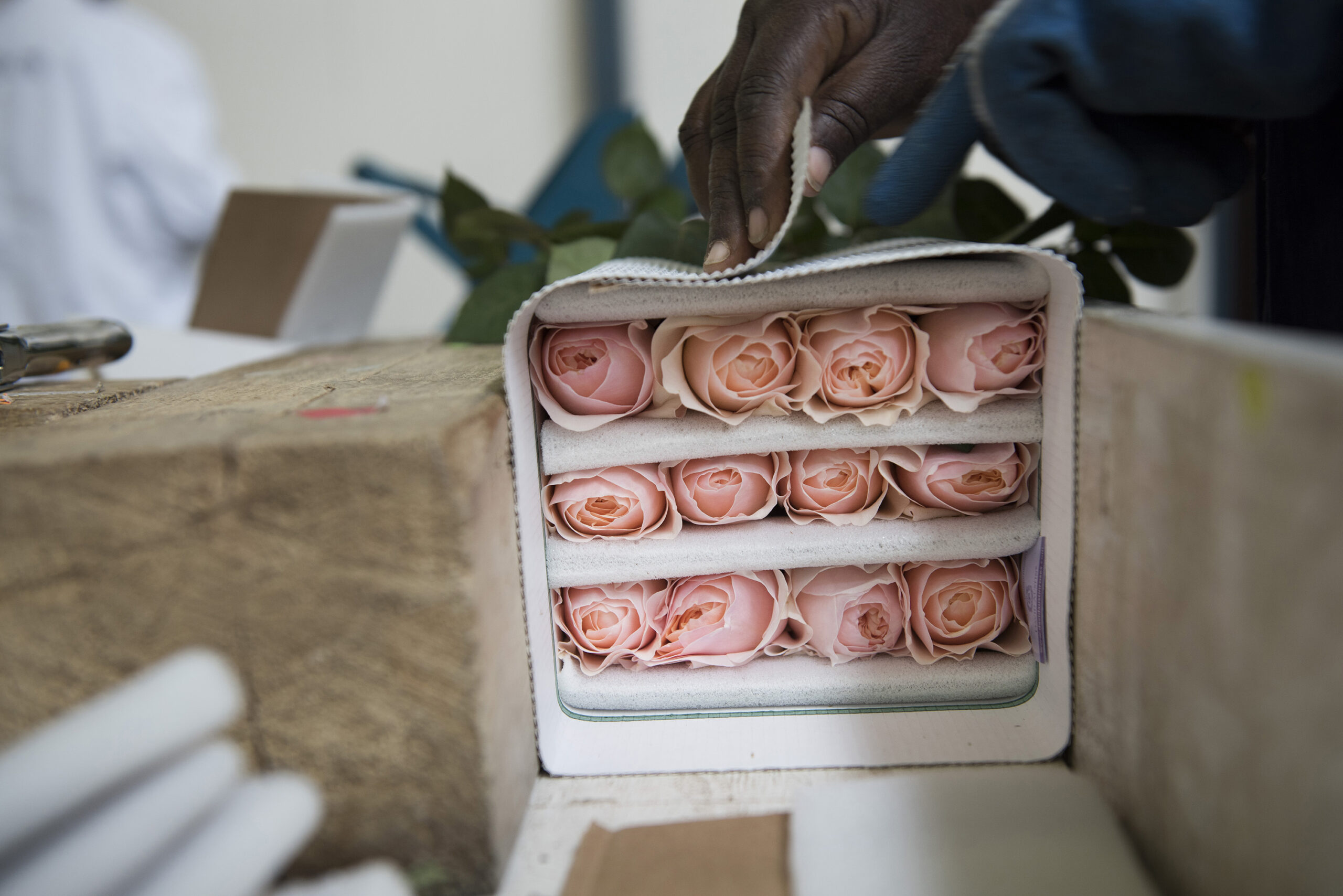By Odette Ntambara
Alphonsine Murebwayire lives in Kagitumba, Nyagatare district with her husband and six children. She has been working in the shed department at Garden Fresh Rwanda – a farm in Nyagatare District, Eastern Province which produces and exports fresh French beans— for the past two years as a cleaner. Currently, she is one of two advisors for the Gender Committee at the farm: a committee that was formed after a training on leadership.
Under the Women Leadership Project, Rwanda Women’s Network (RWN) partnered with the farm with an aim to promote a safe and secure environment that provides decent work conditions and equal opportunities for women farm workers. RWN introduced the project to the farm in February 2018, with a selection of eight farm workers (six women and two men) to lead the farm level engagements.
Impact of the training
Alphonsine is among the women who have undergone training through the Leadership Project. Prior to the training Alphonsine doubted her skills as a leader, which limited her engagements with her coworkers. This she says was due to a lack of self-confidence and a concern for job security; ‘people in the community talk and any negative comments towards you can easily lead back to your employer, which may put your job in jeopardy’. Farm level workers are mostly employed on a casual basis and do not receive a letter of appointment or contractual agreements. Subsequently, there is no job security which affects the workers livelihood.
Though Garden Fresh established a workers’ committee, most workers did not seem to understand its role or function. Alphonsine was inquisitive and wanted the opportunity to change her livelihood, her way of thinking and realize her rights as a worker. In the beginning she did not understand the modules, as activities brought on new concepts that she was unaware of. But slowly by receiving constructive feedback and encouragement from the RWN team, fellow trainees and support staff, she increased her self-confidence. “I liked the session on taking care of yourself, setting goals and learning about rights at the work place.” Alphonsine said.
Financial literacy
Rwanda currently does not have a minimum wage which has impacted the wages and salaries across different sectors, including the horticulture sector. As part of the Women Leadership Curriculum a financial literacy module was introduced to encourage a savings culture, overall money management and investment for the farm workers. Alphonsine and her fellow trainees were encouraged to start savings groups at the farm which has empowered the group to inspire others and improve their living and working conditions. Alphonsine has since bought land and built a new house through the funds collected in the savings group. She has a better working relationship with her coworkers too. “I appreciate the savings groups a lot because I am now able to save and support myself in ways I was unable to do before. I am more outspoken and not afraid to speak and encourage others in the community” she said.
Women Leadership Project
From 2017 to date, Rwanda Women’s Network has implemented the Women Leadership Project in the Horticulture sector in Rwanda through the Hivos Women@Work Campaign. The Campaign aims to contribute to decent work for women who earn their living through global production chains, most notably flowers, vegetable and fruits in Eastern Africa countries.The goal of the Women Leadership Project is to promote advancement of women’s leadership and representation in decision-making processes in the horticulture sector by addressing both strategic and practical issues that hinder women’s progress. The project contributes to the global agenda on Sustainable Development Goals mainly the SDG5 (Gender equality) and SDG8 (Decent work and Economic Growth).
* Title is a quote from Mark Sanborn, author




